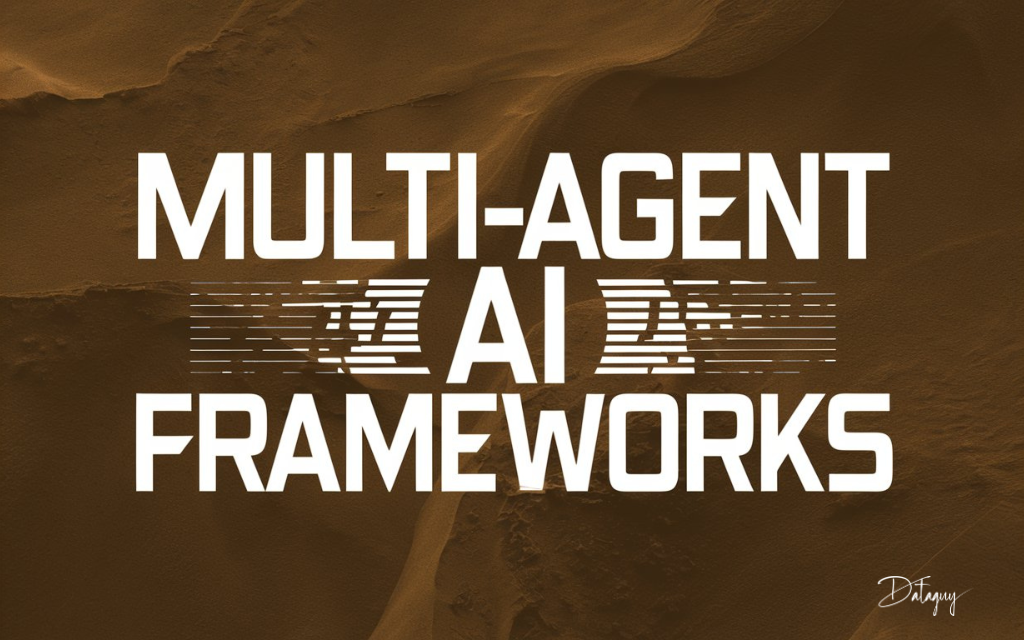Insights Index
ToggleAutoGen or CrewAI – The Ultimate Multi-Agent AI Framework Showdown
Multi-agent systems are becoming increasingly essential for tackling complex tasks and automating workflows. Among the prominent frameworks in this space are AutoGen and CrewAI. In this article, we’ll dive deep into these powerful tools, exploring their features, applications, and how they compare to each other.
What is AutoGen?
AutoGen is an open-source framework developed by Microsoft that enables the creation of multi-agent applications. It focuses on facilitating agent collaboration through conversation and enhancing large language model (LLM) inference.
Key Features of AutoGen:
- Multi-Agent Collaboration: AutoGen allows a group of “ConversableAgents” to work together on complex tasks.
- Flexible Agent Definition: Users can customize various parameters for agents, including system messages and termination conditions.
- Code Execution: AutoGen supports the execution of LLM-generated code using Docker containers.
- Human Feedback Integration: The framework allows for human input during agent conversations.
- Customization and Flexibility: AutoGen offers extensive options for developers to tailor the system to their needs.
What is CrewAI?
CrewAI is another open-source framework designed for orchestrating role-playing autonomous AI agents. It emphasizes structured workflows and task automation within a collaborative environment.
Key Features of CrewAI:
- Role-Based Agent Design: Agents can be assigned specific roles, goals, and backstories.
- Sequential Task Execution: CrewAI supports step-by-step task completion with outputs informing subsequent steps.
- Integration with Local Models: Users can incorporate their own AI models for enhanced customization.
- Asynchronous Execution: Tasks can be carried out without blocking the overall workflow.
- Tool Integration: CrewAI allows for seamless integration of various tools and functionalities.
AutoGen vs CrewAI: A Comparison
While both frameworks aim to facilitate multi-agent AI systems, they have distinct approaches and strengths:
Core Focus:
- AutoGen emphasizes multi-agent conversations and LLM inference.
- CrewAI focuses on structured workflows and role-based task automation.
Customization:
- AutoGen offers extensive customization options for developers.
- CrewAI provides a more user-friendly approach accessible to those with limited technical expertise.
Code Execution:
- AutoGen uses Docker containers for robust code execution.
- CrewAI integrates with LangChain tools for code execution but may require additional setup for complex tasks.
Scalability:
- AutoGen integrates well with cloud services like Azure OpenAI.
- CrewAI offers built-in tools for monitoring and optimizing agent performance.
User Accessibility:
- AutoGen may have a steeper learning curve due to its complexity.
- CrewAI is designed to be more approachable for business users and those with less technical background.
Practical Applications
Both AutoGen and CrewAI have a wide range of practical applications across various industries:
AutoGen Applications:
- Software Development: Automating code generation, debugging, and test case creation.
- Healthcare: Managing patient populations and automating data analysis.
- Research and Academia: Streamlining data gathering and analysis processes.
- Creative Industries: Assisting in content creation and ideation.
CrewAI Applications:
- Automated Customer Support: Creating AI Agents to handle inquiries and provide support.
- Content Creation: Assigning roles to agents for researching and writing articles or reports.
- Event Planning: Coordinating logistics and managing various aspects of event organization.
- Financial Analysis: Conducting stock market evaluations and generating investment recommendations.
Conclusion
Both AutoGen and CrewAI offer powerful solutions for developing multi-agent AI systems, each with its own strengths and focus areas. AutoGen excels in providing flexibility and control for complex, computation-heavy tasks, making it ideal for developers and researchers. CrewAI, on the other hand, offers a more structured and user-friendly approach, suitable for business users looking to automate collaborative tasks.
The choice between these frameworks depends on the specific requirements of your project, your technical expertise, and the level of customization you need. As the field of multi-agent AI continues to evolve, both AutoGen and CrewAI are poised to play significant roles in shaping the future of intelligent automation.
By leveraging these innovative frameworks, businesses and developers can unlock new possibilities in AI-driven collaboration, enhancing productivity and tackling increasingly complex challenges in our ever-changing digital landscape.

